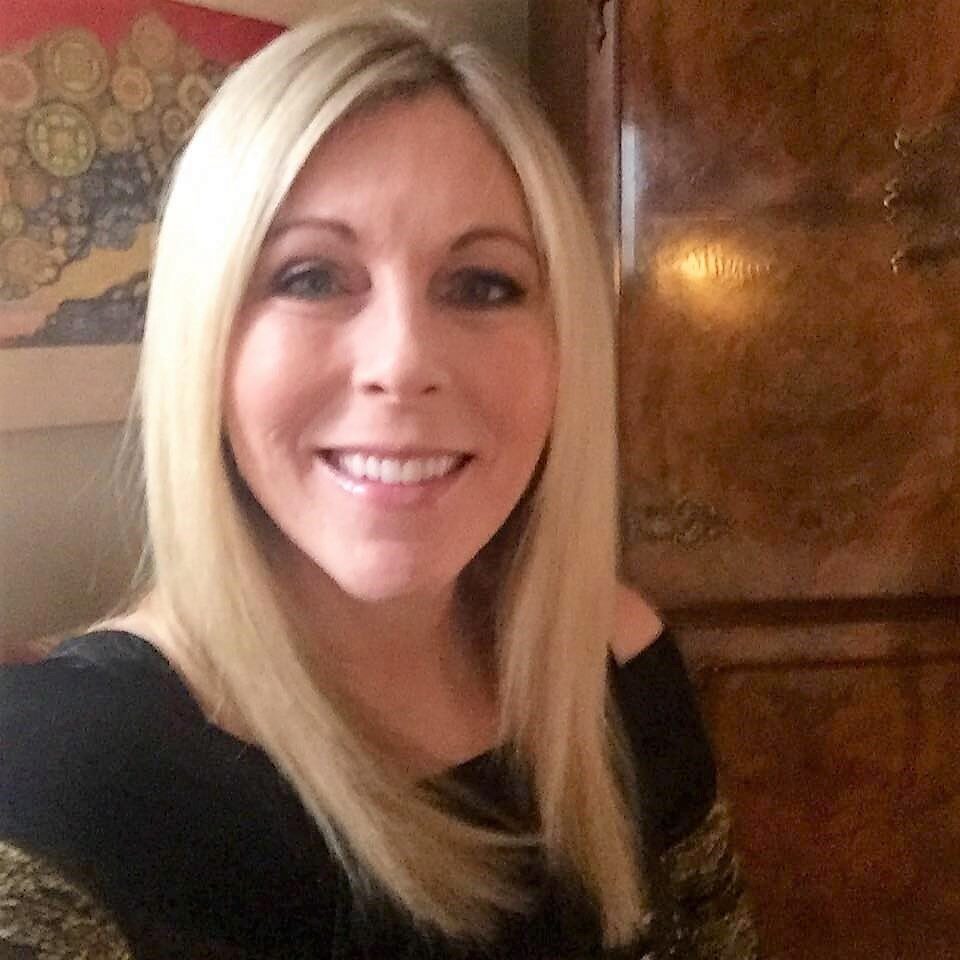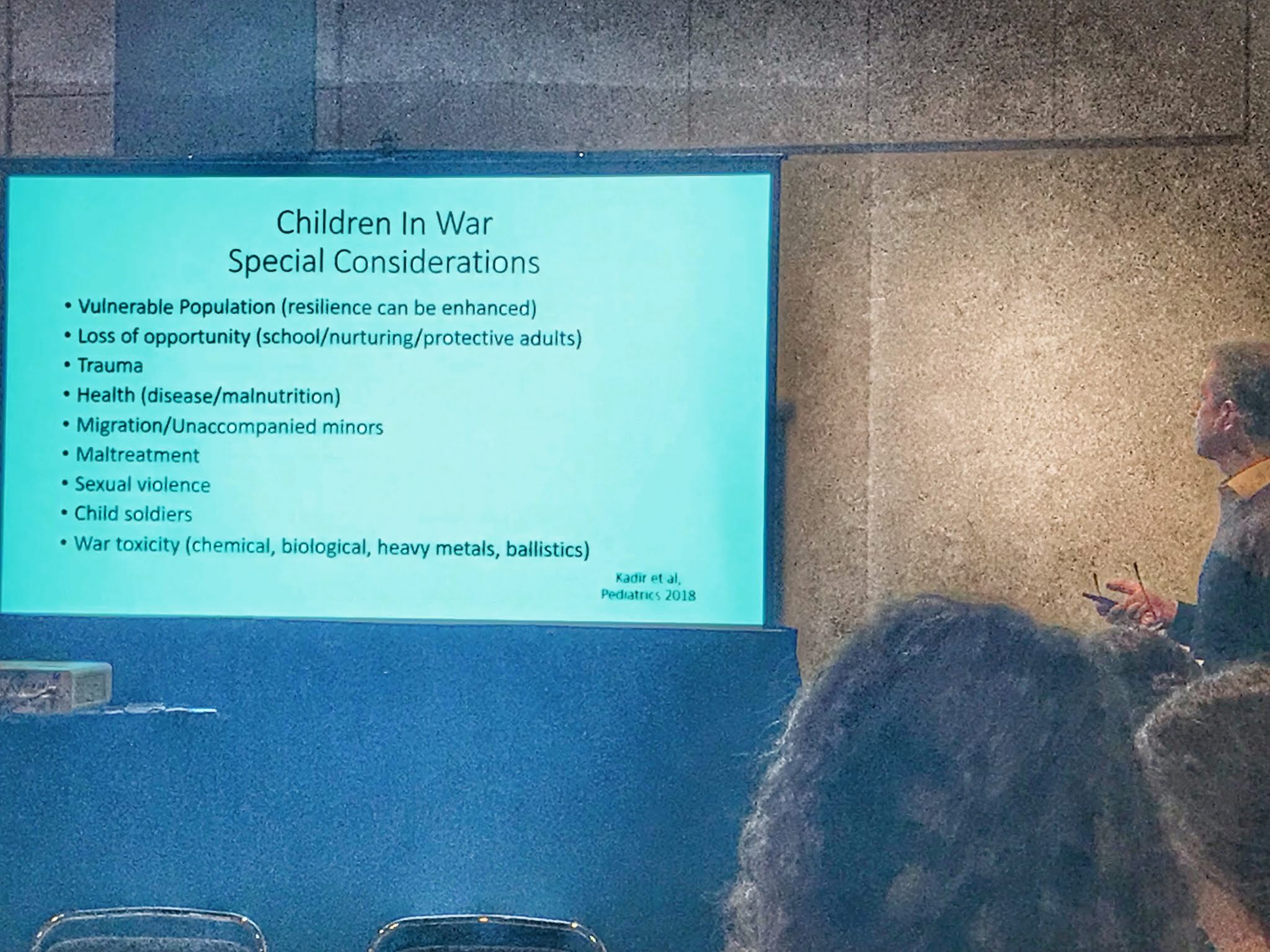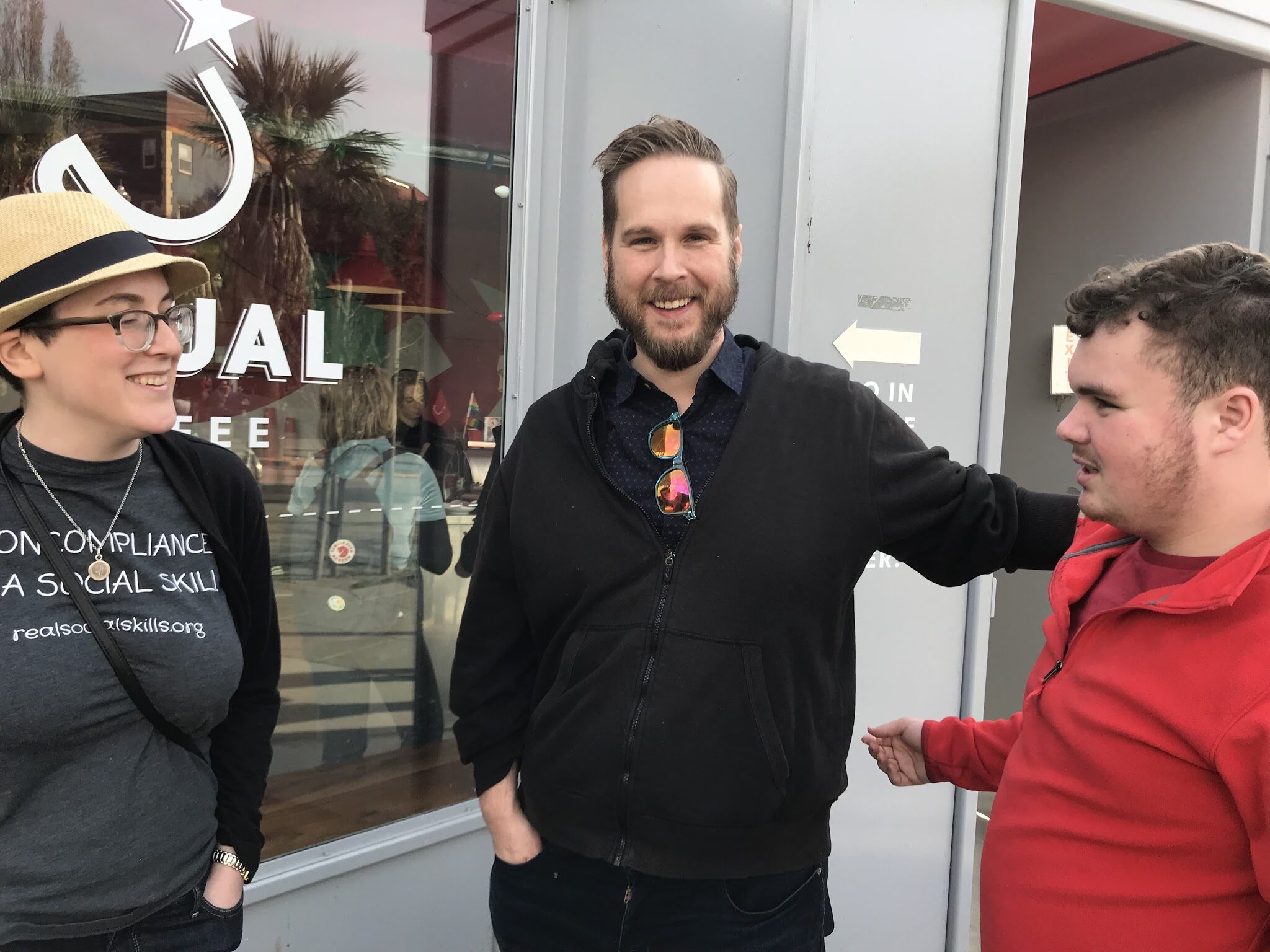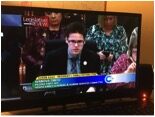After your loved one receives a diagnosis of Autism, people may bombard you with (possibly unsolicited) advice for next steps. One such step you may actually want to consider is to seek the services of a Speech-Language Pathologist (SLP).
Tag: developmental disability
Shannon Rosa Senior Editor [Note: This report is based on @thinkingautism live-tweeted coverage, and as such may contain errors or omissions.] Report from the INSAR 2019 Special Interest Group (SIG) Autism and Related Disorders in the Context of Humanitarian Emergencies. SIG summary: “UN figures estimate 48 million children are impacted by humanitarian emergencies, including armed conflict and natural disasters. Within this population, children with autism and developmental disorders are extremely vulnerable to poor short and long term outcomes. There is increased awareness of the vulnerability of these children but limited research based knowledge on how to best address their needs. We aim to launch a platform for communication and collaboration between autism researchers and key stake holders in the humanitarian setting to address this gap.” First up was Doctors without Borders and SIG leader Ramzi Nasir, a developmental pediatrician who worked in conflict zones. He asked: Can we use remote consultations…
Photo © NASA Goddard Space Flight Center | Flickr / Creative Commons [image: Photo of two neutron stars ripping each other apart.] Maxfield Sparrow unstrangemind.com Sometimes when I’m talking with someone about autism it feels like we’re talking about two different things. For example, I’ve had countless conversations that go something like this: “You’re nothing like my child. My child has the serious kind of autism,” they might open with. “Autism is serious stuff,” I respond. “It’s important to take it seriously.” “No, I mean my child has the autism with digestive stuff and physical involvement. The severe autism.” “I have intermittent gastroparesis that has sent me to the hospital multiple times. I have a connective tissue disorder that has caused pelvic organ prolapse. These things aren’t autism.” And it’s the truth: the co-occurring conditions we cope with are not autism; they are the “genetic hitchhikers” that love to travel…
From its inception, not only did the neurodiversity movement’s values include the most significantly disabled, but those individuals themselves were among our earliest pioneers.
Painting © Tracy Booth | Creative Commons/Flickr [image: Painting of a tiny home with a red roof with white spots, and a lantern, under a crescent moon] Many of our U.S.-based community members, including parents and caregivers, want guidance and clarity about how the impending Home and Community Based Services (HCBS) Settings rule will affect both adult housing choices and adult day programs. So, we spoke with policy expert Julia Bascom, Executive Director of the Autistic Self Advocacy Network, who explained in plain conversational language how exactly the new HCBS Settings rules will affect housing options, how some common misunderstandings about the rule happen, and why the rule is essentially about trying to ensure adults with disabilities have the same basic rights as non-disabled adults do. Thinking Person’s Guide to Autism: Why was the rule enacted in the first place? Julia Bascom: The HCBS Settings Rule sets ground floor, baseline…
Ivanova Smith @lauralovesian1 My name is Ivanova Smith and I am a proud autistic activist advocate. I advocate at the Washington State legislature! I testify at bill hearings about policies that affect me as a developmentally disabled person. One of the bills I put the most attention to is to shut down state institutions. [Image: Ivanova Smith testifying against a Bill that allow respite to be provided at an institution! They have brown hair. They are wearing black suit with grey shirt and tie. They are speaking into a microphone.] There are four state-run institutions in Washington, and they hold 800 people with Intellectual/developmental disabilities (I/DD). These used to be called training schools. I have heard the arguments for support of these institutions many times while I have waited to give testimony. I have had to listen to all these arguments on why it OK to imprison people like me.…
Clarissa Kripke, MD, FAAFP odpc.ucsf.edu In this important talk for anyone concerned about their, or their child’s, long-term living arrangements and supports, Dr. Clarissa Kripke explores progress made in community living for people with developmental disabilities. She explains how California’s Lanterman Act has been enormously successful by establishing an entitlement to community-based services and supports for people with developmental disabilities of all age, and how those services work. She also discusses specific successful cases, and clears up misconceptions about which housing models work best — both financially, and for quality of life. I’m the Mom of an Autistic teen. Of course I want what’s best for him. I want him to have opportunity, stability, care, and respect. After trying to learn everything I could, I realized that wanting what’s best, and knowing how to achieve it, are two different things. Fortunately, we live in California. The Lanterman Act was developed…





